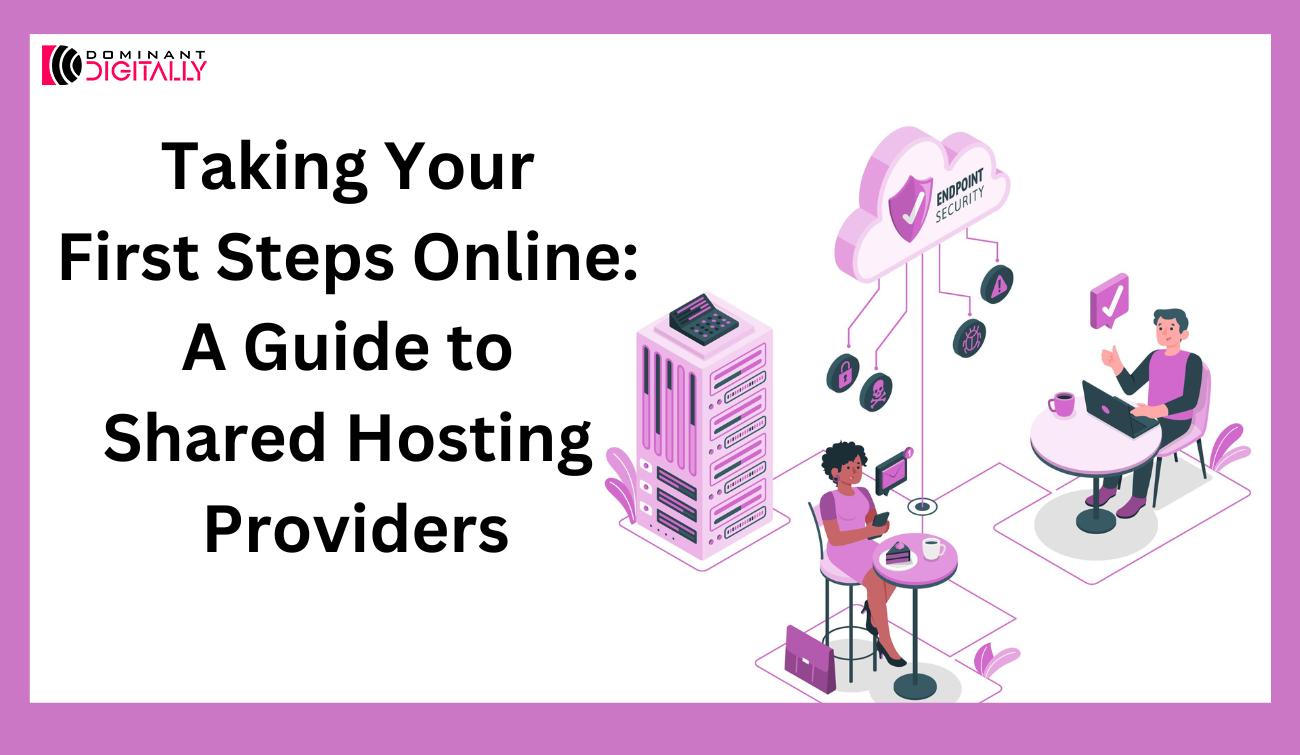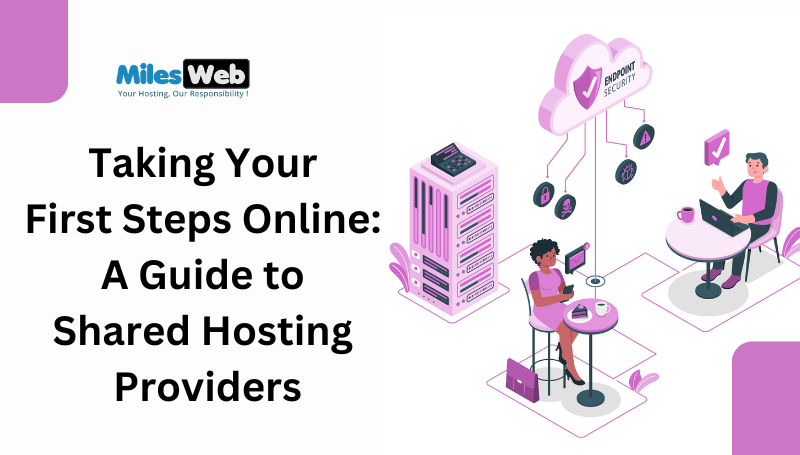
Website Hosting
Congratulations! You’ve determined to take the plunge and establish your unique presence on the internet. Whether it is a personal web blog, a portfolio showcasing your skills, or a small commercial enterprise, the internet is an exquisite platform where you can connect with like-minded people and start your own online journey. But before you dive straight into the design and layout of your website, there is another essential step: deciding on a shared website hosting provider. When considering your options, remember to factor in the 1 year hosting price to ensure it fits within your budget and provides the necessary features and support for your website’s needs.
Why shared hosting only?
While there’s no restriction on the other hosting services, for websites that are taking their first steps in the online world, shared hosting solutions are the most ideal. More than 50% of websites get launched using shared hosting providers and plans.
Thus, it is also essential to find the best hosting service provider who’ll meet all the requirements of your website. This guide will equip you with the expertise you need to navigate the sector of shared web hosting. We’ll explore what it’s about, why it is ideal for beginners, a way to pick the ideal provider for your website, and a few of the top competitors of shared hosting in the industry. Additionally, we’ll discuss how to find the lowest price hosting options available.
Understanding Shared Hosting

Shared hosting solutions are the defining points in the web hosting industry. To explain what shared hosting is, the simplest example is “rented space.” Here, multiple members (website owners) have their own area (their website); however, they share commonplace sources like hallways (server bandwidth) and utilities (server processing features). That’s basically how shared website hosting works. Multiple websites reside on a single physical server, sharing the sources present on the server to make it a cost-efficient solution.
However, shared hosting has some key benefits, including its cost. The server resources are shared among numerous users, therefore, the expenses are also spread out between them, which makes it a pretty budget-friendly solution for small enterprises, bloggers, personal websites, and websites with moderate traffic.
Although, shared hosting does have a major disadvantage. Due to the shared nature of shared servers, it is possible to impact the performance of other websites on the same server if one website receives a spike in traffic or consumes excessive resources.
There are fewer customization options and server configurations available to consumers with Dedicated Servers or Virtual Private Servers compared to alternative hosting options like Virtual Private Servers.
How Does Shared Hosting Work and Who Should Choose It?
There are multiple websites hosted on a single server in a shared arrangement. Users on the server share disk space, CPU, and memory, and charges are distributed among them.
The shared server allows users to create multiple sites with a single user account, sharing bandwidth, power, and memory. Shared is a type of web hosting that is ideal for small businesses,
A shared server can host hundreds of websites, but because resources are shared, it is ideal for smaller websites and beginners. Sites that don’t receive a lot of traffic or need a lot of space will benefit from this. Having shared resources makes shared hosting cost-effective.
Benefits of Shared Hosting
Shared hosting offers numerous advantages, especially for those venturing online for the first time:
- Cost-Effectiveness: Shared web hosting is the most low-cost choice in comparison to dedicated servers or virtual private servers (VPS). Here, the costs are divided amongst all the users, making it a budget-friendly way to get hosted.
- Ease of Use: Since in shared hosting, users share the server and resources, there’s no one owner to manage it. Hence, normally, the hosting provider itself does server maintenance and technical protection. This frees the other users from complicated technical obligations and management.
- Beginner-Friendly Interface: Many web hosting companies offer user-friendly control panels to customize and control your website and files. These interfaces are frequently intuitive and require a minimum of technical information.
- Scalability: As your website grows, you can easily upgrade your hosting type to accommodate the accelerated growth of your website.
Is Shared Hosting Right for You?

Shared web hosting is an ideal option for:
Personal website and blog: If you are growing a private place to share your hobbies, pursuits, or experiences, a shared website hosting plan may be compatible since it has enough features for a modest website.
Small Business: Starting a professional website!Shared hosting can be the most economical way of promoting your products, services and other information.
Portfolio on the net: This is where freelancers, artists and anyone else who wants to promote their work online will find this type of hosting useful because it is cheap and easy.
How to Choose a Shared Hosting Providers?
It can be difficult to choose among all the shared hosting providers available today. Here are some things you should consider when looking for one:
Performance and Uptime
Website performance and uptime are two very important factors. Slow loading websites or frequent downtimes can ruin your reputation online. Make sure that your host guarantees high uptime (99.9% and above) as well as fast server response times – also keep in mind that where they locate their servers may affect how quickly your site loads.
Security Features
Security is a major concern in today’s digital environment; so ensure that your host offers SSL certificates for securing your site as well as regular backups together with malware scanning capabilities. The safety of not only its users’ data but also the whole website depends entirely on this particular aspect of any shared web-hosting service provider you opt for.
Scalable
If you are searching for a web hosting provider, who will be able to handle increasing traffic and growing resource needs, then consider those that allow easy scalability through plan upgrades or type changes.
Customer Support
Technical hitches may occur while using a website hence the need for accessible customer support services. A good host should offer 24/7 customer service supported across several channels including live chat, email tickets and phone calls.
Pricing and Contracts
Do an analysis of different hosts’ pricing structures? You should not rush into low-cost plans as they may have hidden charges or restricted resources. Moreover, check if they offer flexible contracts terms alongside refund guarantees which give peace of mind during sign up.
Reviews and Reputation
It is advisable to know what reputation precedes any potential web host provider by going through consumer reviews from independent websites besides testimonials found on their official sites. Look out for performance feedbacks like uptime speeds plus response times during peak hours; also reliability ratings based on server hardware used among others since such factors greatly affect user experience.
Backup and Restore Options
The importance of regular backups cannot be overstated in case of data loss or website issues. Automated backups and easy restore options should be offered by your hosting provider.
Extras and Add-Ons
Some hosting providers offer extra features, such as website builders or white label website builder and free domain registration. You should prioritize the core hosting features that meet your requirements over these extras.
Top 3 Shared Hosting Providers for New Businesses
1. MilesWeb

MilesWeb offers several shared web hosting plans with features like free website migration, a 99.95% uptime guarantee, and 24/7 assistance via live chat and email. Additionally, they also offer security measures like free SSL certificates, DDoS safety, and malware scanning on all plans. MilesWeb allows for smooth upgrades to VPS or dedicated website hosting plans as your website grows. They offer competitive pricing, starting at just $1 per month.
2. Hostinger
Hostinger’s shared website hosting plans also offer extensive features such as a drag-and-drop editor, SSL certificates, website backups, and firewalls. However, their plans are more expensive than MilesWeb, starting at $2.99 per month and their hPanel requires technical understanding to manage all the website’s tasks. Hostinger offers introductory prices and later the renewal charges need to be paid, which might not be the best option.
3. HostGator
HostGator offers shared website hosting plans at $3.75/mo, but it is just the introductory price. Similar to Hostinger, the renewal prices are quite high. HostGator offers features like FTP access, MySQL databases, 24/7 help, an SSL certificate, and simple protection features. Their shared hosting plans come with introductory discounts but be aware of the renewal costs.
To Conclude
The industry of web hosting can seem complicated, but with shared web hosting as your starting point, you’ve made the right choice to set up your online website presence.
This blog has valuable insights into shared website hosting providers. Remember, the perfect provider relies on your unique website needs. For example, MilesWeb stands at the top of this list due to its unique hosting features, 30-day money-back guarantee, best costs, and user-friendly hosting plans.
Therefore, consider your needs, technical knowledge, and budget before making your final choice. Don’t be afraid to discover providers that offer free trials (when supplied) to get experience with their interfaces and customer service.
Nice post! 1754806016